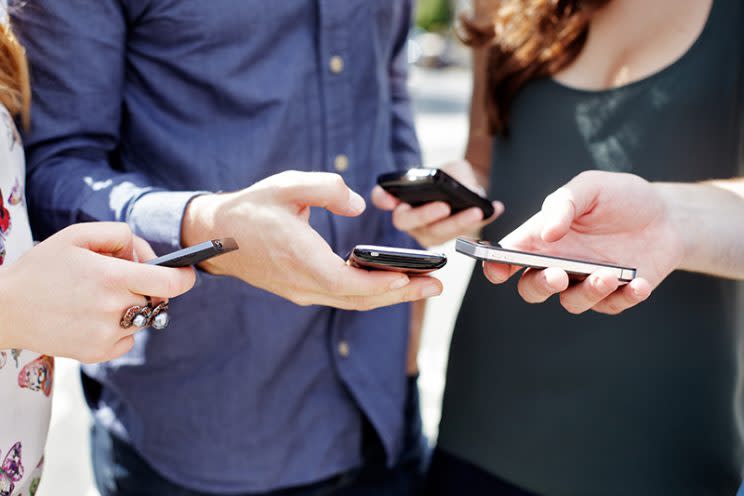Popular People on Social Media Are Happier IRL

If you’re on social media, chances are you’ve scrolled through your feed and compared yourself to your friends, who all just look so happy all the time.
A study published in the European Physical Journal Data Science finds that your hunch was correct: Your friends actually are happier than you. Ouch.
“This analysis contributes to a growing body of evidence that social media may be harmful to users who ‘overindulge’ in these services since it’s nearly impossible to escape negative comparisons to their friends’ popularity and happiness,” lead author Johan Bollen, associate professor at Indiana University School of Informatics and Computing, told EurekAlert.
Bollen warned that people should actively limit their social media consumption, and hopes that the study will “shed light on issues that affect the well-being of billions of people.”
Analyzing public information on Twitter, Bollen and his team randomly selected 4.8 million Twitter users. Then they narrowed that down to users who followed one another, who they called “friends,” thus creating group of about 102,000 users with 2.3 million connections.
Focusing the study on users with 15 or more friends on Twitter — a group of 39,110 people — the team analyzed the emotional tone of the users’ tweets to assess whether they were generally positive or negative. Those with more positive sentiment were labeled “happy.”
Of this group, the research indicated that 94.3 percent had fewer friends on average than their friends, and that 58.5 percent weren’t as happy as their friends on average. “In other words, a majority of users may feel that they’re less popular than their friends on average,” Bollen said. “They may also have the impression that they’re less happy than their friends on average.”
Ultimately, the study found that most social media users typically fall into two camps: happier users with happier friends and unhappier users with unhappier friends. Even the unhappier users were likely to be less happy than their unhappier friends, which suggests the strong impact of having unhappier friends.
This is the first study to reveal that happiness is correlated with popularity, and that “the majority of people on social networks aren’t as happy as their friends due to this correlation between friendship and popularity,” Bollen added.
The study builds upon the effect known as the “Friendship Paradox,” which reveals that most people on social networks have fewer connections themselves as compared to their friends, since popular users interact in more social circles than average. The researchers dubbed the subsequent impact of popularity on happiness the “Happiness Paradox,” indicating that popular users are happier on average, which positively affects the happiness of those users’ entire social circles.
But the happiness doesn’t extend to those unhappy users with unhappy friends. “Overall, this study finds social media users may experience higher levels of social dissatisfaction and unhappiness due to negative comparison between their and their friends’ happiness and popularity,” Bollen said.
He concluded: “Happy social media users may think their friends are more popular and slightly happier than they are — and unhappy social media users will likely have unhappy friends who still seem happier and more popular than they are on average.”
Read more from Yahoo Style + Beauty:
Follow us on Instagram, Facebook, and Pinterest for nonstop inspiration delivered fresh to your feed, every day. For Twitter updates, follow @YahooStyle and @YahooBeauty.
